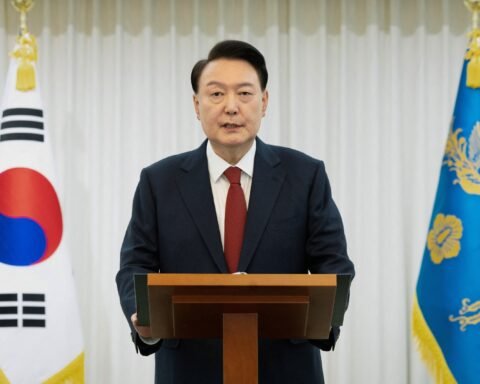Meta, the tech giant led by Mark Zuckerberg, has come under fire after removing transgender and non-binary themes from its Messenger app.
This decision, part of a broader shift in company policies, has sparked protests among employees and criticism from advocacy groups who say the move undermines inclusivity and caters to conservative views.
The themes, which previously allowed users to customize their Messenger experience to celebrate LGBTQ+ identities, were quietly removed in what Meta has described as a policy realignment. This decision coincides with the company’s broader efforts to dismantle diversity, equity, and inclusion (DEI) programs and ease restrictions on certain types of content, including hate speech.
Advocacy groups like GLAAD have condemned the changes. “Meta has gone from permitting harmful behavior to actively engaging in it,” said a spokesperson. The group called the removal of the themes a deliberate step away from inclusivity and a troubling sign of the company’s shifting priorities.
Meta has also announced the end of its third-party fact-checking program in the United States, opting instead for a system that allows users to add context to questionable posts, similar to the “Community Notes” feature on X (formerly Twitter). Nicola Mendelsohn, Meta’s head of global business, assured advertisers that brand safety would remain a priority, despite concerns about how these changes might affect misinformation and hate speech on the platform.
In addition to these controversial moves, Meta has terminated its DEI programs, following a trend among major corporations like McDonald’s, Walmart, and Ford. According to Janelle Gale, Meta’s vice president of human resources, the decision reflects shifting legal and social landscapes in the United States.
These policy changes come as Meta navigates a challenging political climate under President Donald Trump’s administration. Mark Zuckerberg has reportedly sought to align the company more closely with conservative viewpoints, meeting with the president and emphasizing traditional values in public discussions. Critics argue this shift is part of a broader strategy to relax content moderation policies and cater to the current administration’s preferences.
Also Read; Trump Administration Defines
Gender as Male and Female
Internally, the changes have caused significant unrest among Meta employees. Reports suggest that workers have voiced strong opposition, accusing the company of abandoning its commitment to inclusivity. One employee, speaking on condition of anonymity, described the atmosphere as “tense and disheartening.”
As these developments unfold, Meta faces mounting pressure from both inside and outside the company. Critics warn that the changes could damage Meta’s reputation as a leader in fostering diverse and inclusive digital spaces. On the other hand, supporters argue that these decisions represent a return to free expression and less restrictive policies.
The global community is closely watching Meta’s next steps, as the company’s choices are likely to influence how the tech industry balances inclusivity, freedom of speech, and corporate responsibility.







